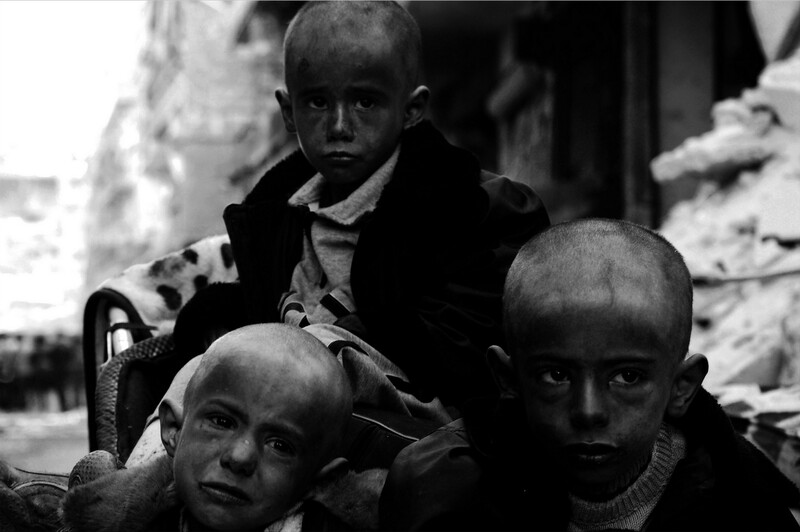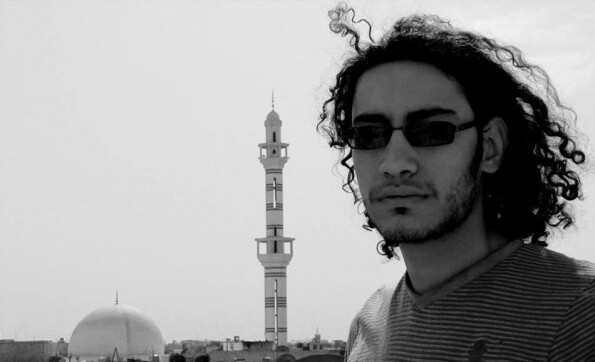Rights and Accountability 18 July 2018

Niraz Saied’s award-winning “The Three Kings” photograph. (UNRWA)
A young Palestinian photographer who was disappeared following his arrest by Syrian secret police in Damascus in late 2015 has died in government custody, according to reports.
The Committee to Protect Journalists called on the Syrian government “to conduct an immediate and transparent investigation into the death of Niraz Saied.”
Saied’s longtime partner Lamis al-Khatib, who lives in Germany, stated on Facebook on Monday that “There’s nothing harder than writing these words, but Niraz doesn’t die in silence.”
Nidal Bitari, the managing director of the Washington-based group People Demand Change, told the Committee to Protect Journalists that Saied’s mother contacted a senior government official on 13 July and was told that Saied had been executed in September 2016.
Another government official called Saied’s mother to confirm the death of her son, the press freedom watchdog stated.
Yarmouk
Saied’s family originally hails from the village of Awlam, south of Tiberias, which was destroyed during the ethnic cleansing of Palestine by Zionist forces in April 1948.
Saied was born and raised in Yarmouk refugee camp and photographed daily life there following its bombing by government forces in December 2012 and subsequent siege.
Saied, who was living outside Yarmouk at the time of the initial bombing of the camp, returned to his place of birth after thousands of residents fled.
“I tried to capture the daily life reality in the camp, to accentuate the human face of the suffering and transform the smallest details into a work of art,” Saied told The Electronic Intifada contributor Budour Youssef Hassan a year before his arrest.
Saied won first prize in a competition organized by the European Union and UNRWA, the UN agency for Palestine refugees, for his black-and-white photograph “The Three Kings” showing three boys waiting to leave the besieged camp in order to receive medical treatment in March 2014.

Niraz Saied (via Radio Yarmouk 63)
Another photograph from Yarmouk taken a month earlier, showing hundreds of residents queuing for humanitarian aid, surrounded by bombed-out buildings, drew international attention to the plight of the camp.
Dozens of residents of Yarmouk – formerly the heart of the Palestinian refugee community in Syria and known as the capital of the Palestinian diaspora – died of starvation that winter following months of blockade by Syrian government forces and allied militias.
Saied assisted in the production of the 2014 film Letters From Yarmouk, which he said is “aimed at telling our fellow Palestinians about what’s going on in Yarmouk. We do feel that we have been let down.”
Saied remained in Yarmouk until it was seized by Islamic State fighters who had infiltrated the camp in April 2015.
Facing threats against his life, Saied fled to nearby Yalda before going into hiding in a government-held neighborhood in Damascus with the intention of leaving the country.
He was arrested at his home in October 2015.
“After several months, Saied’s family found out that he was being held at Damascus’ Palestine Branch military intelligence prison,” the Committee to Protect Journalists stated.
In August 2016 he was transferred to the Sednaya military prison in Damascus.
Saied’s arrest “was likely connected to [his] work covering the humanitarian effects of the Syrian government’s siege of his home district of Yarmouk,” Nidal Bitari told CPJ.
Saied was “charged with taking money from foreign governments as part of a terror plot,” CPJ stated, sourcing Bitari.
“Gone forever”
Saied presaged the fate that would ultimately befall Yarmouk.
“Yarmouk as we know it is gone forever,” he told The Electronic Intifada in late 2014. “It is either heading towards complete decimation or becoming an Islamic emirate or towards maintaining the status quo because no one seems interested in solving the crisis, not the regime, not the rebels and definitely not the Palestinian factions.”
Following years of siege, bombing and fighting, Syrian government forces routed Islamic State militants from Yarmouk in May this year, reducing the camp to rubble.
“The scale of the destruction in Yarmouk compares to very little else that I have seen in many years of humanitarian work in conflict zones,” UNRWA’s commissioner-general Pierre Krähenbühl stated on 3 July after making the first visit by a senior UN official to the camp in years.
More than half a million Palestinian refugees were living in Syria before war that followed the government’s crackdown on popular protests that erupted in March 2011.More than 3,800 Palestinian refugees have died as a result of the war in Syria, according to the Action Group for Palestinians of Syria. Nearly 1,700 Palestinians are currently being detained and more than 300 are disappeared or missing, the monitoring group says.
“Niraz Saied’s story is a tragedy for his family, friends and colleagues – as well as a living nightmare for dozens of journalists in Syria today,” the Committee to Protect Journalists’ Sherif Mansour stated on Monday.
The country is one of the most dangerous for journalists. Seven journalists were being held in state prisons in 2017 and at least 120 have been killed while covering the ongoing war, and “government or military officials are suspected in more than half of those deaths,” according to the Committee to Protect Journalists.
Dozens of journalists and media workers are currently caught in Quneitra, in Syria’s southwest, between advancing pro-government forces and closed boundaries controlled by Jordan and Israel, CPJ stated.
Deaths in Syrian custody
During the month of June the Action Group for Palestinians of Syria published the names of more than 30 Palestinians who died in government custody after their deaths were said to be confirmed by security officials.
The majority of those whose names were released were from Aideen refugee camp in Hama.
More than a dozen additional names of Palestinian refugees who died in Syrian prisons were released in July. Noura Ghazi Safadi, the wife of the Palestinian-Syrian software developer Bassel Safadi, also known as Bassel Khartabil, stated on Facebook on 1 July that it was confirmed her husband was killed in Syrian government custody on 5 October 2015.Bassel was arrested in Damascus in March 2012, one year into the uprising in the country, and held in incommunicado detention.
Last year his family learned that he was killed in 2015 after being tried and sentenced in a military field court, despite an international campaign to win his freedom.
“Today, we become one of those families that are now certain of the loss of their beloved,” Noura stated on Facebook.
“I have a new hope, because the criminals confirmed that they killed Bassel and I now have the date that he was killed, after fighting for more than two years just for this confirmation.”





